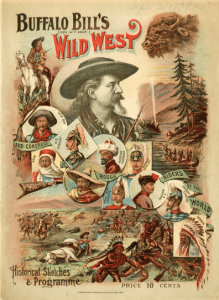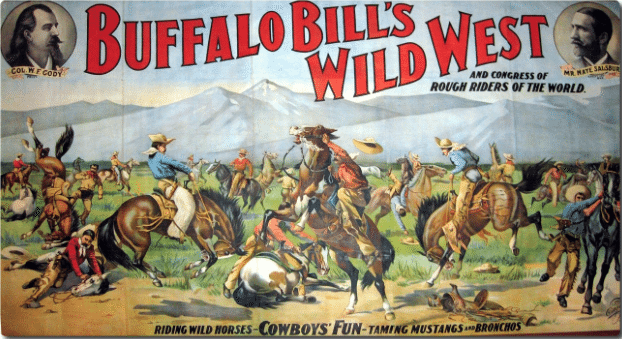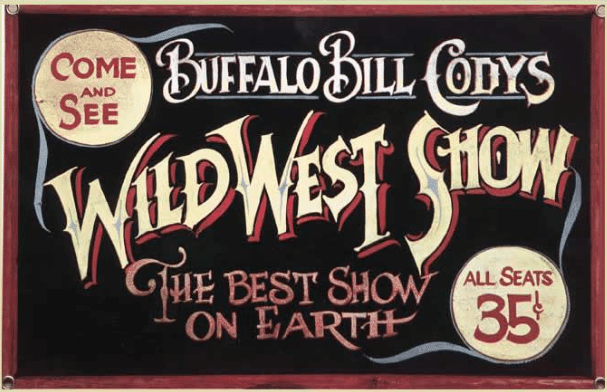The Papers of William F. Cody—an archive of the life and times of an iconic figure from the American West—provide readers with insight into the political, economic, and environmental factors that influenced the United States during Cody’s lifetime, as well as a look into his lesser-known roles as a community founder, businessman, investor, and rancher. This archive includes a vast collection of Cody’s business and personal correspondence, business records, published and unpublished writings, memoirs and autobiographies, recordings and videos, photographs, and print media.
Recently, I had the opportunity to sit down and talk to the William F. Cody Papers Staff at the Center of the West and learn about some of their biggest surprises, as they delve deeper into this intricate project.
Jeremy Johnston—Managing Editor of the Papers and Curator of the Buffalo Bill Museum—explained that after studying the newspaper coverage of Buffalo Bill’s Wild West, one of his greatest surprises has been “Cody’s tremendous ability to reach out to specific audiences.” In fact, it is not commonly known that Cody did not simply have one standard performance template that he took from one community to another.
“[Cody] and his team had a great appreciation of the cultures of the people that they were performing before, so he would alter the show,” Johnston continued.
For example, when Buffalo Bill’s Wild West arrived in Spain, they did not perform a reenactment of a bison hunt because the audience was accustomed to bullfighting. Additionally, in Germany, the people did not care for the reenactment of historical events, so those performances were not often included in the show.
In Scotland there was a great interest in seeing lynching reenactments, so the cast of Buffalo Bill’s Wild West actually re-created a hanging for the audience. They later performed that same reenactment in England; however, it was not as well-received.
In the Northern and Midwest United States, the reenactment of the Battle of Little Bighorn was quite popular, but interestingly enough, when Cody and his team performed in the South, that particular reenactment seemingly disappeared.
There is no doubt Buffalo Bill’s Wild West and its colorful history left its impact. Reenactments during performances such as the Battle of Little Bighorn, the Pony Express, the attack on the stagecoach, and many other well-known events still continue to shape and influence the way society thinks about the American West.
Stay tuned for more updates in the near future regarding the latest finds and discoveries of the William F. Cody Papers Staff. To learn more about the life and times of Cody, click here!








